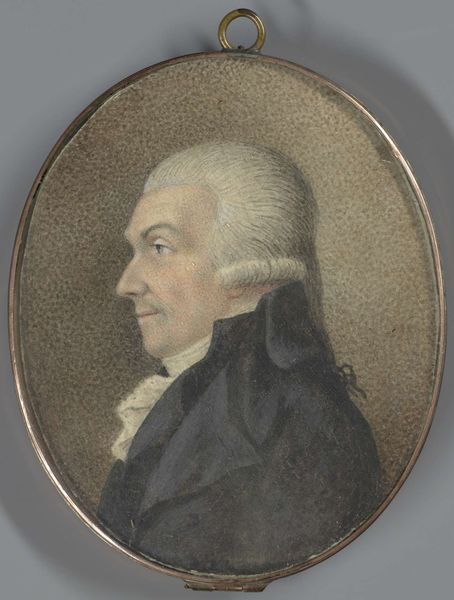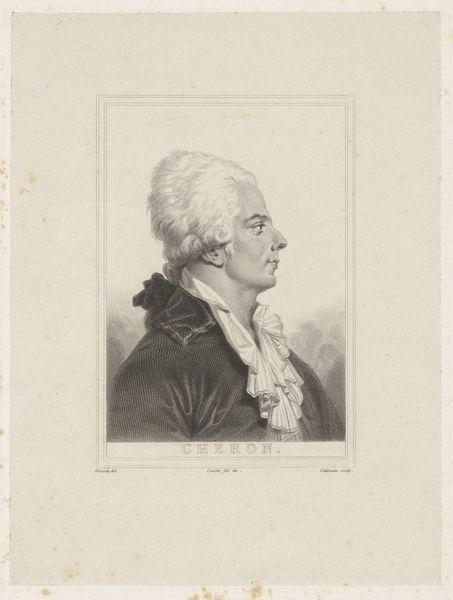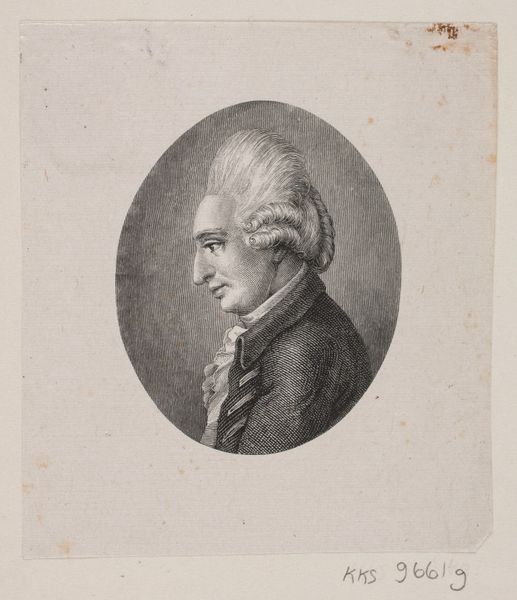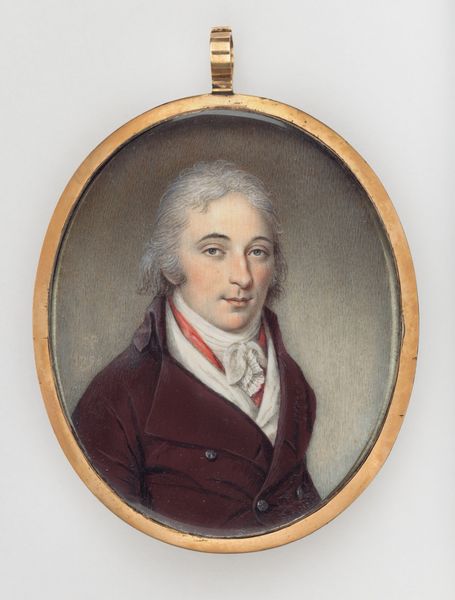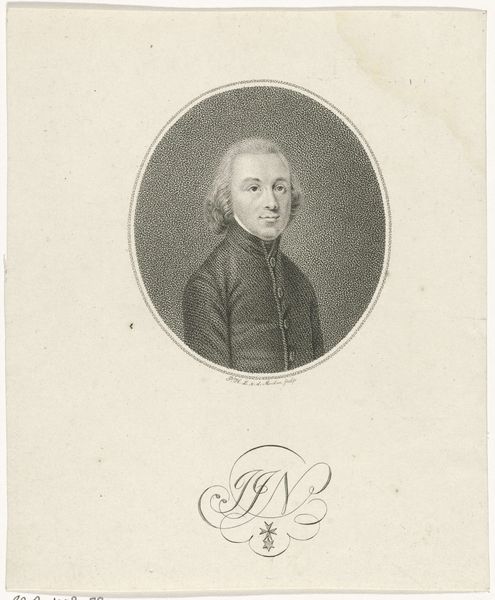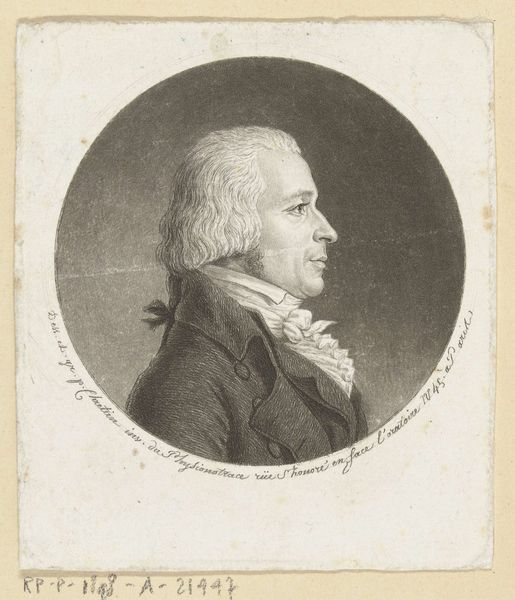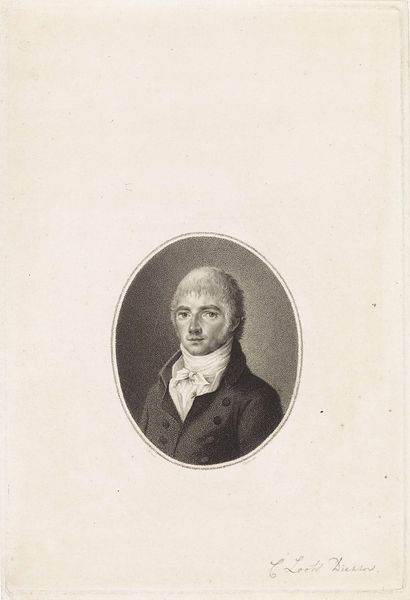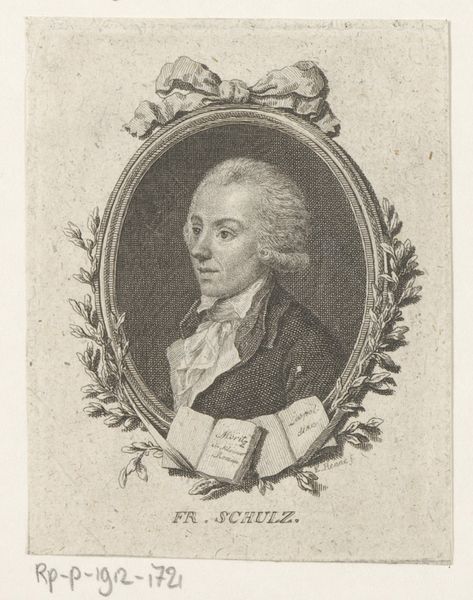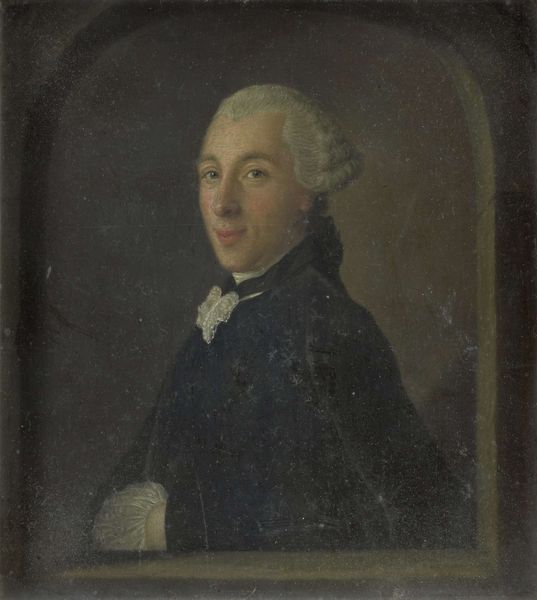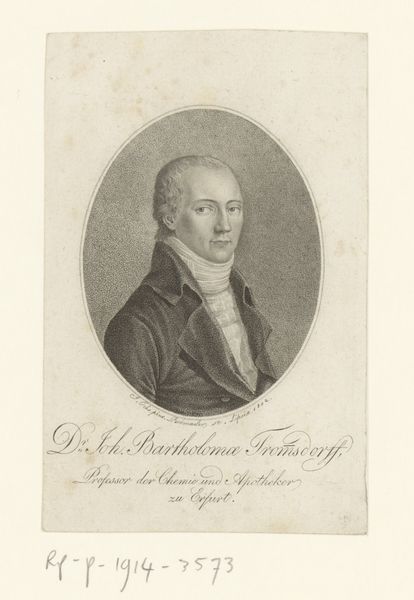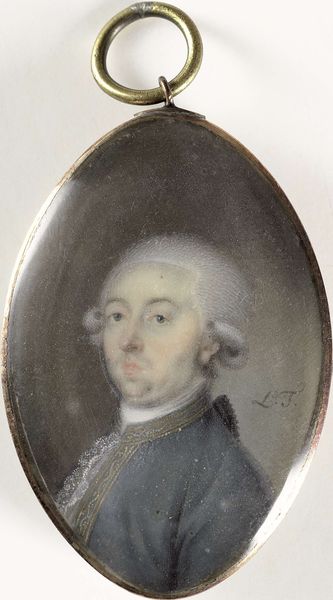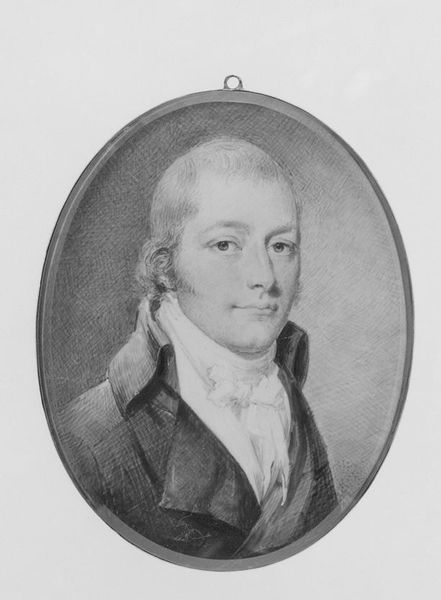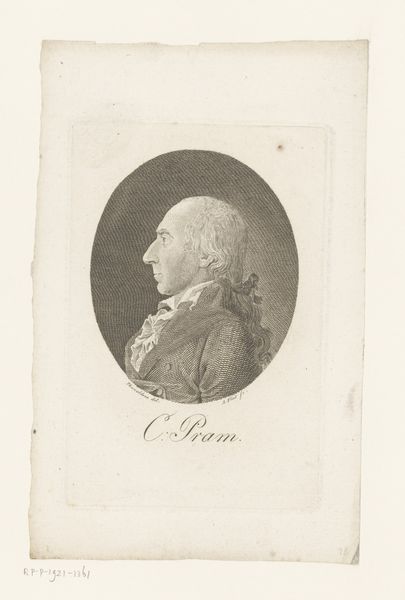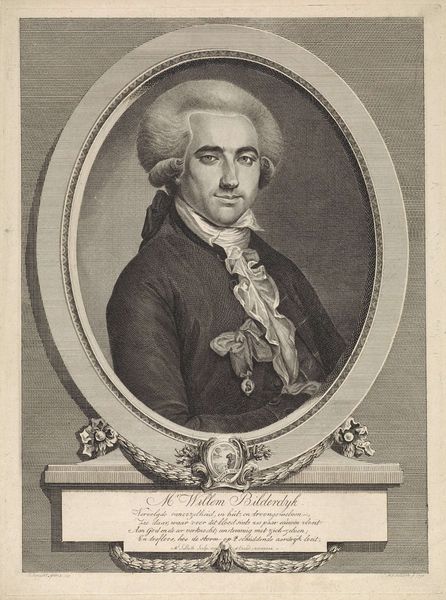
watercolor
#
portrait
#
neoclacissism
#
oil painting
#
watercolor
#
academic-art
#
portrait art
#
statue
Dimensions: height 138 mm, width 110 mm
Copyright: Rijks Museum: Open Domain
Editor: This is "Profile Portrait of a Gentleman in a Blue Coat, facing left," created between 1762 and 1823. It's a watercolor. I'm struck by its almost stony quality, like a miniature marble bust. What are your thoughts? Curator: Notice the careful application of watercolor, mimicking the textures of expensive fabrics. This reflects the material conditions of its production and consumption. A portrait wasn't simply a likeness, but an advertisement for a particular class position achieved through labor and consumption. Editor: So the materials used contribute to understanding class dynamics? Curator: Precisely. Watercolors, though perhaps appearing delicate, required skill and access to specific resources. Consider the pigment itself – where did it come from? Who processed it? How did that availability influence the aesthetic? And of course, who could afford such a commission? These questions connect art directly to the economic and social realities of the time. Editor: I see what you mean. It’s not just a portrait; it’s a record of production, labor, and access. I never would have considered that just by looking at it! Curator: And it’s important to recognize the labor involved, not only the artist's, but also the laborers that are implied through the subject. Consider how academic art maintained rigid hierarchies, valuing "fine art" above the skills and efforts involved in preparing these paints and grounds. Even now, art historical practices tend to overlook this material foundation. Editor: So, it becomes a critique of those very systems through our present examination? Thank you! Curator: Precisely. Considering materials provides a new level of comprehension.
Comments
No comments
Be the first to comment and join the conversation on the ultimate creative platform.
